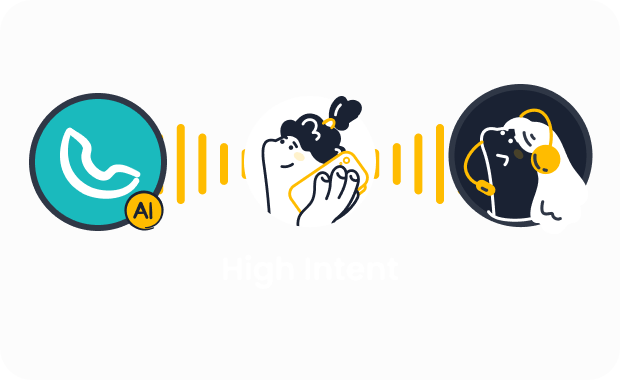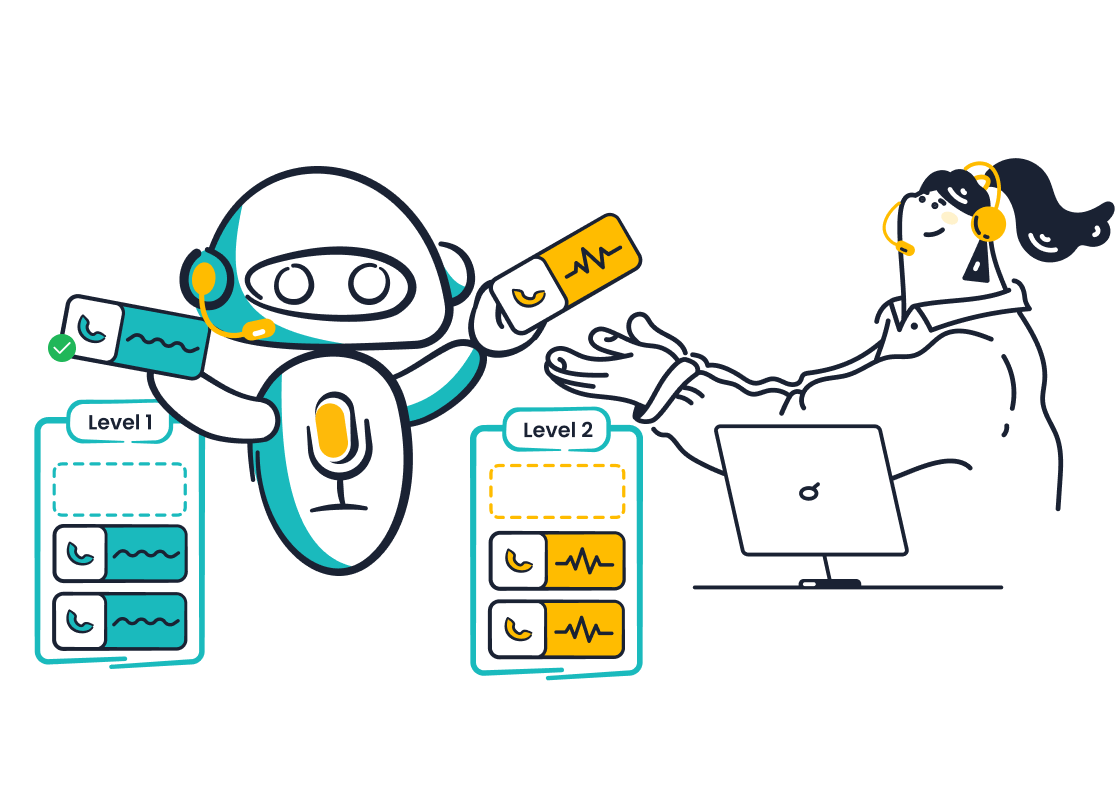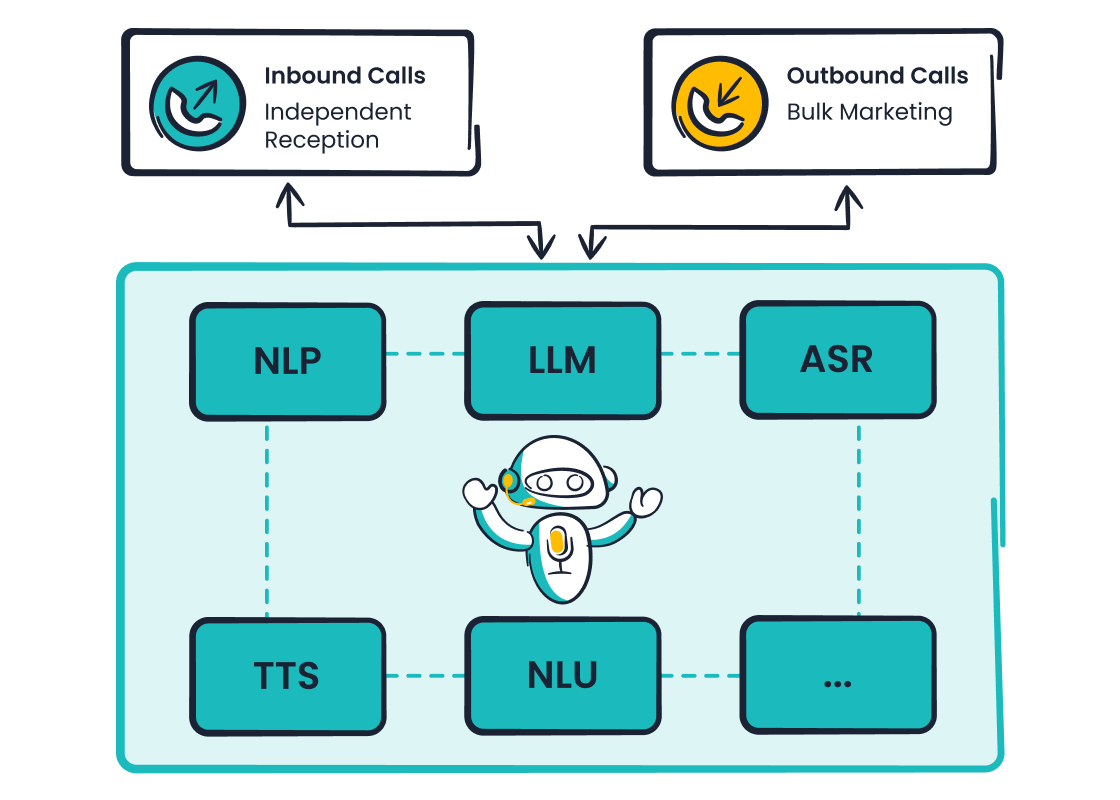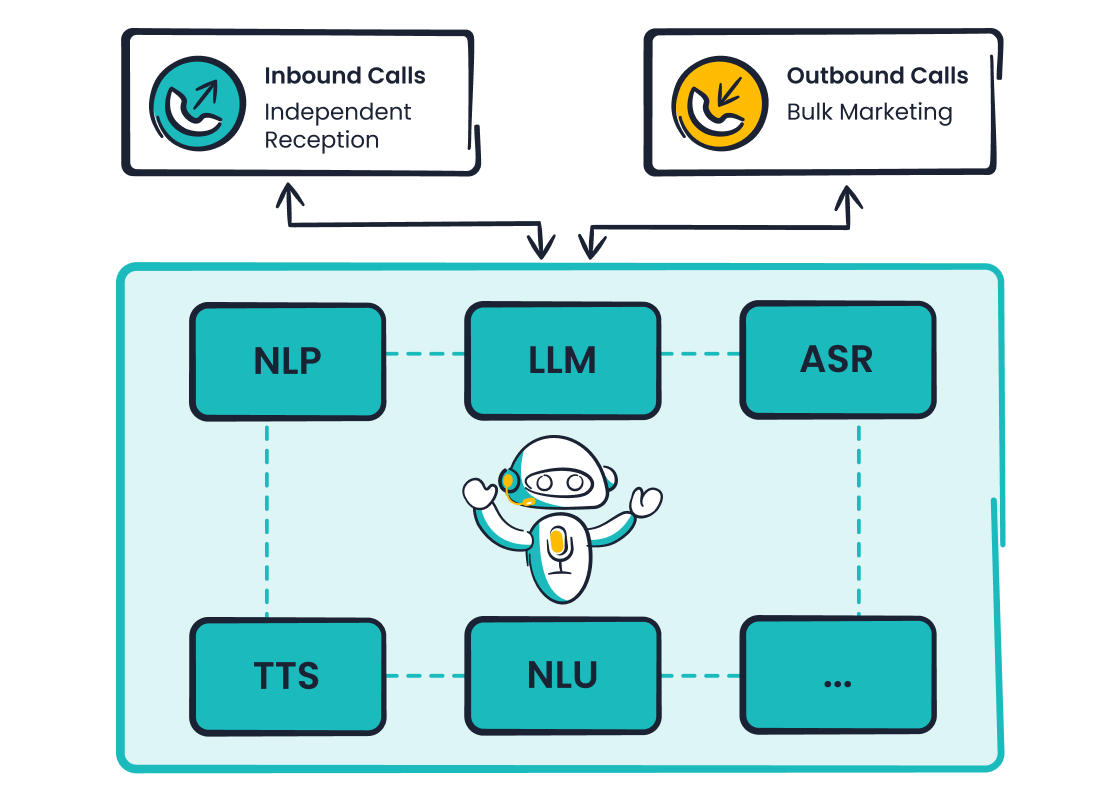Getting Started with Voicebot for Call Centre

Imagine a customer calling your contact center late at night, needing help fast. A voicebot for call centre answers right away, speaks in their language, and solves the problem without delay. You can transform your call center by using a voicebot that works 24/7, handles thousands of calls, and never gets tired. Many companies now use voicebot customer service to cut costs and improve satisfaction. Research shows businesses adopting voice solutions see up to 40% faster call handling and save billions. Sobot AI offers a voicebot solution that fits your contact center needs. With Sobot call center, you get a voice bot that makes customer service easy, secure, and efficient.
Voicebot for Call Centre Basics

What Is a Voicebot
You may wonder what a voicebot for call centre actually does. A voicebot is an advanced ai voice bot that uses voice recognition and conversational ai to interact with customers. When someone calls your contact center, the bot listens, understands, and responds using natural language. The voicebot acts as the first point of contact, helping customers with questions, solving simple problems, and routing calls to the right human agent if needed. This ai tool uses technologies like automatic speech recognition (ASR), natural language processing (NLP), and text-to-speech (TTS) to create a smooth, human-like conversation. In a call center, the voicebot for call centers reduces wait times, improves customer satisfaction, and makes your operations more efficient.

Sobot Voicebot Overview
Sobot Voicebot brings the latest ai voice bot technology to your contact center. You get a solution that handles both inbound and outbound calls. For inbound calls, the bot answers questions, solves problems, and can handle over half of customer interactions without human help. For outbound calls, the voicebot for call centre can make marketing calls, tag customers by their interest, and boost your sales. The Sobot Voicebot uses ASR, NLP, LLM, and TTS to deliver intelligent, human-like voice interactions. If a customer needs more help, the bot transfers the call to a human agent. Sobot’s solution supports omnichannel communication, so your team can manage voice, chat, and email from one place. This voice ai for call centers improves efficiency and customer experience.
- Sobot Voicebot features:
- Real-time speech recognition and reasoning
- Handles inbound and outbound calls
- Transfers to human agents when needed
- Integrates with your contact center systems
- Supports multilingual conversations
AI Voice Bot vs. Traditional IVR
You may have used a traditional IVR system before. These systems ask you to press buttons to choose from a menu. This can feel slow and frustrating, especially if you have a complex question. An ai voice bot changes the experience. The bot understands your words, responds naturally, and solves your problem faster. For example, a customer once got stuck in an endless IVR loop. The next day, she called a company using an ai voice bot and got help right away, without pressing any buttons. Studies show ai voice bots improve customer satisfaction by 27% and reduce errors by half. Voice ai for call centers gives you a more natural, efficient, and satisfying solution than old IVR systems.
Key Benefits for Customer Satisfaction
Faster Response Times
You want your customers to get help quickly. Sobot’s ai voice bot answers calls right away, so your customers never wait long. The bot listens, understands, and responds in real time. This instant action means your voicebot customer service can handle over half of all customer interactions without delay. When you use a voicebot, you reduce average handle time by 41%. Your customers get solutions faster, which leads to higher satisfaction. The Weee! case study shows this in action. After using Sobot’s voicebot, Weee! saw a 50% drop in resolution time and a 20% boost in agent efficiency. These results prove that fast, accurate voice responses make a real difference in customer satisfaction.
24/7 Multilingual Support
Your business may serve people from many backgrounds. Sobot’s ai voice bot gives you 24/7 customer support in multiple languages. The bot provides personalized responses any time of day or night. This feature helps you reach more customers and deliver high-quality interactions. The table below shows how 24/7 multilingual support improves customer satisfaction and efficiency:
| Metric / Feature | Impact on Customer Satisfaction and Experience |
|---|---|
| 24/7 Multilingual Support | Enables instant, accurate responses in multiple languages anytime, enhancing accessibility and personalization. |
| Instant Handling Rate | Voicebot handles over 50% of customer interactions instantly, reducing wait times. |
| Average Handle Time Reduction | Decreased by 41%, lowering customer effort and improving efficiency. |
| First-Contact Resolution Rate | Improved by 54%, leading to faster problem resolution and higher satisfaction. |
| Net Promoter Score (NPS) | Increased, indicating better overall customer loyalty and experience. |
| Customer Satisfaction (CSAT) | Higher due to personalized multilingual support and efficient issue resolution. |
| Service Uptime | 99.99% uptime ensures reliable availability, critical for continuous support. |
| Seamless Human Agent Transfer | Complex issues are smoothly escalated, maintaining service quality. |
| CRM Integration | Easy and fast integration enhances agent efficiency and customer data management. |
Cost Savings and Efficiency
You want your call center to work smarter, not harder. Sobot’s voicebot customer service helps you save money and boost efficiency. The bot automates repetitive tasks, so your agents can focus on complex issues. Here are some real results:
- Agent efficiency increased by 30% after adopting Sobot’s ai voice bot.
- Labor costs dropped, and customer satisfaction improved to 97%.
- Samsung Electronics used Sobot to solve platform switching and repetitive inquiry problems.
- Integration and automation tools improved customer support workflows.
- The bot’s advanced AI features let it sense frustration and handle complex questions faster than human agents.
You get elevated customer satisfaction, more efficient customer engagement, and a voicebot that delivers personalized responses every time.
Steps to Implement Sobot Voicebot

Implementing Sobot Voicebot in your call center can transform your customer experience and boost efficiency. You can follow these steps to make the process smooth and successful. Each step helps you unlock the full power of ai voice bot technology and voice automation.
Define Goals and Use Cases
Start by setting clear goals for your voicebot project. You need to know what you want to achieve with ai voice bot and voicebot development. Do you want to reduce wait times, improve first-contact resolution, or automate routine tasks? You can use Sobot Voicebot for many scenarios, such as answering FAQs, handling order status requests, or routing calls to the right agent.
List your top use cases. For example, you might want the bot to greet callers, verify identities, or provide multilingual support. You can also use the bot for outbound marketing calls or customer satisfaction surveys. Sobot Voicebot supports both inbound and outbound calls, so you can automate many types of customer interactions.
Tip: Write down your goals and use cases before you start voicebot development. This helps you measure success and make improvements later.
Common goals for voicebot projects:
- Reduce average handle time
- Increase customer satisfaction scores
- Automate repetitive tasks
- Improve agent efficiency
- Provide 24/7 support
Design Conversation Flows
You need to design conversation flows that make your ai voice bot sound natural and helpful. Sobot Voicebot gives you a visual flow builder, so you can create and adjust dialogues easily. Good conversation design helps your bot understand callers, answer questions, and transfer calls smoothly.
Follow these best practices for designing effective conversation flows:
- Document reusable components like greetings, confirmations, and closings. This keeps your voicebot consistent.
- Define clear turn-taking rules. Use progressive disclosure to share information step by step.
- Manage topics and digressions. Keep the bot aware of context for natural voice interactions.
- Map out conversation flows and intents. Cover a wide range of phrases to handle different caller needs.
- Write dialogues that sound human-like. This boosts engagement and trust.
- Include edge cases and escalation paths. Make sure your bot knows when to transfer to a human agent.
- Test your flows with real users. Refine them based on feedback.
- Use data analysis for continuous improvement. Update your flows as you learn from customer interactions.
- Design for accessibility and scalability. Your voicebot should work for all users and handle high call volumes.
- Prepare training documentation for your team. This helps everyone understand how the bot works.
- Review case studies and examples. Learn from others to avoid common mistakes.
Note: Sobot Voicebot’s no-code template setting lets you build and change flows quickly. You can drag and drop components to create new dialogues or update existing ones.
Integrate with Call Center Systems
You need to connect your voicebot to your call center systems for seamless operation. Sobot Voicebot offers plug-and-play integrations with popular CRM and contact center platforms. You can use abundant APIs to link the bot with your customer database, ticketing system, and other tools.
Integration helps your bot access customer information, track interactions, and update records automatically. This boosts efficiency and makes customer service automation possible. You can also set up rules for routing calls, triggering outbound campaigns, and syncing data across channels.
Here is a simple integration checklist:
| Integration Step | Description |
|---|---|
| Connect to CRM | Link the bot to your customer database for personalized service. |
| Sync with Ticketing System | Automate ticket creation and updates during voice interactions. |
| Enable Omnichannel Support | Manage voice, chat, and email from one unified platform. |
| Set Up APIs | Use Sobot’s APIs for fast and secure integration with existing systems. |
| Configure Routing Rules | Direct calls to the right agent or department based on caller needs. |
| Test Data Flow | Make sure customer data moves smoothly between systems. |
Tip: Work with your IT team to plan integration. Test each connection before going live to avoid disruptions.
Test and Optimize
Testing is key to successful voicebot development. You need to check how your ai voice bot handles real calls, responds to different questions, and transfers to human agents. Sobot Voicebot lets you run test scenarios and monitor performance with built-in analytics.
Start with a pilot program. Use real customer calls to see how the bot performs. Track metrics like response time, resolution rate, and customer satisfaction. Look for areas where the bot can improve, such as handling complex questions or managing edge cases.
Optimize your voicebot by updating conversation flows, adding new use cases, and training the bot with fresh data. Sobot Voicebot’s learning-driven builder makes it easy to iterate and enhance performance. You can scale up quickly to handle more calls as your business grows.
Note: Continuous improvement is vital. Review analytics regularly and make changes to keep your voicebot efficient and effective.
Common pitfalls to avoid:
- Skipping user testing before launch
- Not updating flows based on feedback
- Overcomplicating dialogues
- Ignoring edge cases and escalation paths
- Failing to integrate with all necessary systems
You can avoid these issues by following a structured approach and using Sobot’s tools for voicebot development and voice automation.
By following these steps, you can implement Sobot Voicebot smoothly and unlock the benefits of automating routine tasks, improving efficiency, and delivering outstanding customer service.
AI Voice Bot Integration Best Practices
Seamless CRM Integration
You want your voicebot to work smoothly with your existing systems. Sobot makes this easy by offering plug-and-play integration with CRM and other platforms. When you connect your ai voice bot to your CRM, the bot can access customer data and update records in real time. This means every voice interaction is logged, and your team always has the latest information. The voicebot can automate ticket creation, update customer profiles, and trigger follow-up actions. You get a unified view of each customer, which helps you deliver personalized responses and improved accuracy. Integration with ERP and other tools also allows the bot to automate routine tasks, saving your team time.
Human-AI Collaboration
A successful call center uses both human agents and ai voice bot technology. Sobot’s platform supports this teamwork in several ways:
- AI Agents handle simple questions and routine voice tasks, freeing up human agents for complex issues.
- AI Copilots suggest replies and draft summaries, helping agents work faster.
- The voicebot manages batch outbound calls, reducing manual effort.
- An omni-channel workbench lets you switch between bot and human support without losing context.
- The bot updates the knowledge base, so your team always has the best answers.
You get the best of both worlds. The ai voice bot handles repetitive voice tasks, while your agents provide empathy and solve unique problems. This collaboration leads to higher efficiency and better customer experiences.
Data Security and Compliance
You need to keep customer data safe when using a voicebot. Sobot Voicebot follows strict security standards like ISO and GDPR. The platform protects your data with advanced controls and privacy features. In the US, laws such as the CCPA require you to inform customers when they interact with an ai voice bot and give them options to speak with a human. You must also keep records of all voice interactions and train your staff on ethical AI use. Sobot’s focus on secure AI ensures your voicebot meets these rules and keeps your business compliant. You can trust that every voice and bot interaction is protected and handled responsibly.
Measuring Success and Customer Satisfaction
Key Metrics to Track
You need to measure the impact of your voicebot on customer service. Tracking the right metrics helps you understand how the bot improves customer interactions and satisfaction. Start with these key metrics:
- Customer satisfaction score (CSAT): Shows how happy customers feel after using the bot for voice support.
- Net Promoter Score (NPS): Measures how likely customers are to recommend your service.
- Average handle time: Tracks how quickly the bot resolves voice inquiries.
- First-contact resolution rate: Counts how often the bot solves issues on the first try.
- Agent efficiency: Monitors how the bot helps agents focus on complex customer service tasks.
- Cost per contact: Calculates savings from automating customer interactions with the bot.
Industry benchmarks show that using a voicebot can boost customer satisfaction by up to 27%. Hybrid strategies with both voice and chatbots can improve satisfaction scores by 32% compared to single-channel approaches (source). You can use these benchmarks to set goals for your own call center.
Continuous Improvement
You should always look for ways to make your voicebot better. Review analytics from every voice interaction. Update conversation flows to match new customer needs. Train your bot with fresh data to improve accuracy. Use feedback from customer interactions to find areas for improvement. Sobot Voicebot offers a learning-driven builder, so you can adjust the bot quickly. Regular testing and optimization help you keep customer service strong and satisfaction high.
Tip: Schedule monthly reviews of your bot’s performance. Involve your team in brainstorming new ways to enhance customer interactions.
Sobot Customer Success Stories
Many companies have seen big improvements with Sobot Voicebot. Weee!, America’s largest online Asian supermarket, faced challenges with inflexible IVR and language barriers. After switching to Sobot, Weee! reported a 48% increase in customer reception efficiency, a 41% reduction in average handle time, and a 54% improvement in first-contact resolution rate. Customer satisfaction reached 96%. Sobot’s stable service, with 99.99% uptime, and easy CRM integration helped Weee! deliver better customer service and faster voice support. Other brands like Agilent and MICO also praise Sobot for simple integration and robust performance. These stories show how a voicebot can transform customer interactions and boost satisfaction in real call centers (Weee! case study).
You can transform your call center by following clear steps to implement a voice solution. Define your goals, design strong conversation flows, connect your systems, and test your voice setup. Sobot Voicebot gives you a simple way to start. Try a pilot or demo to see real results. The table below shows how a voice solution boosts performance and builds confidence:
| Aspect | Details |
|---|---|
| Reception efficiency | Increased by 48% |
| Handle time | Reduced by 41% |
| Resolution rate | Improved by 54% |
| Uptime | 99.99% |
| Integration | Fast and simple with CRM systems |
| Trial/Demo | 15-day free trial and demo meetings available |
You improve customer satisfaction and operational efficiency with a voice solution that works for you.
FAQ
What is a voicebot and how does it work in a call center?
A voicebot uses AI to understand and respond to callers. You speak to the bot, and it answers using natural language. The voicebot can solve simple problems, answer questions, or transfer you to a human agent if needed.
Can a voicebot handle multiple languages?
Yes, you can set up your voicebot to support many languages. The voice system recognizes different languages and responds in the one you choose. This helps you serve customers from many backgrounds with one voice solution.
How does a voicebot improve customer service?
A voicebot gives instant answers and reduces wait times. You get help any time, day or night. The voice system can handle many calls at once, so you never have to wait in line for support.
Is it easy to connect a voicebot to my current systems?
You can connect your voicebot to your CRM and other tools using APIs. The voice platform works with your existing setup. This makes it simple to track calls, update records, and manage customer data.
What steps should I take to launch a voicebot?
First, set your goals. Next, design your conversation flows. Then, connect the voicebot to your systems. Test the voice solution with real calls. Keep improving the voice experience by reviewing feedback and updating your flows.
See Also
Step-By-Step Instructions For Setting Up IVR Systems
Simple Methods To Deploy Effective Website Chatbots
Expert Techniques For Managing Live Chat Support
